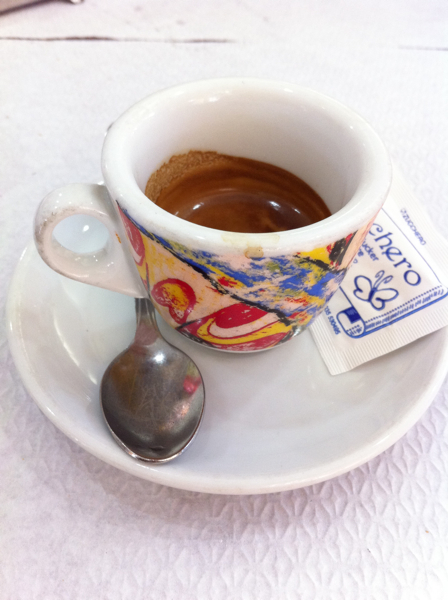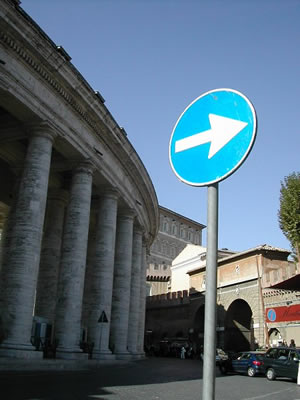Almost every Christmas, we drive halfway down Italy to Abruzzo, where my in-laws are retired by the seaside. This puts us on the road with millions of other Italians going home for the holidays. Much of the flow is north to south: the many southern Italians who migrated to northern Italy decades ago to find work, but still have strong family ties in Sicily, Calabria, etc. So we are part of the grand “exodus,” carefully monitored by the media, with pre-analysis, traffic predictions, minute-by-minute developments, and (afterwards) death toll reports. In recent years we’ve driven on the 24th, when there’s the least traffic (except Christmas Day itself, which we may resort to one of these years). The Sunday before Christmas is also good, as no trucks are allowed on the highways.
There are trains, of course, but travelling by train with a lot of luggage is a pain, and trains have their own risks: The holiday season is when many public services choose to cause the greatest possible disruption, by going on strike. Trains don’t do it too often, but everyone else does. Public transit workers in Milan, Rome, and Genova were on strike for several days during the week before Christmas, causing huge traffic jams as everyone then had to drive to work. This probably put a considerable dent in holiday shopping; I suspect shop owners are not feeling very charitable about anyone’s right to strike at the moment.
Then another protest group got into the act. Italian milk producers are aggrieved because they keep getting fined for producing more milk than European Union quotas allow. For the last several years, they have brought attention to their plight (and won government support for discounts on their fines) by blocking major roads around Milan just before Christmas, particularly near Linate airport. There have been cases (though not this year) of holiday travelers having to walk the last five kilometers to the airport, carrying their own luggage.
(No, this has nothing to do with Parmalat, and I will refrain from any Parmalat jokes as I am sick of them already.)
Between Christmas and New Year’s there is a smaller but still significant movement of people, as many, having spent the obligatory “Natale con i tuoi” (Christmas with your family), now escape to go skiing or for more exotic destinations.
The big “counter-exodus,” of people returning to their working homes from wherever they’ve been, takes place around the Epiphany, January 6th. This year the air traffic controllers are adding to the fun by going on strike January 8th.










